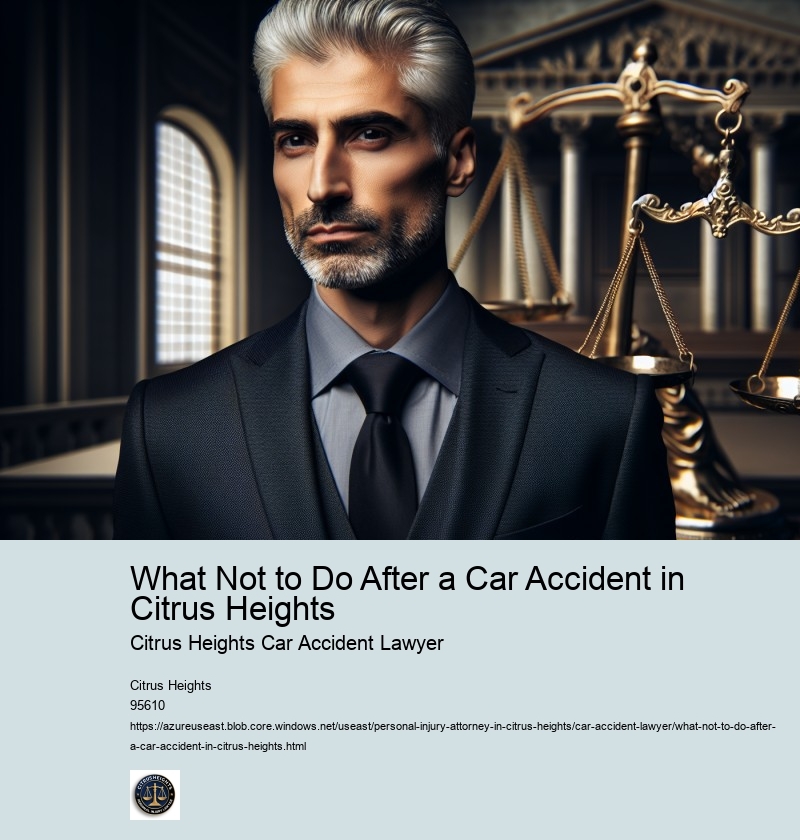What Not to Do After a Car Accident in Citrus Heights
safety

Highway crashes are typically high-impact and may involve multiple parties. If you’ve been hurt in a car accident, speaking with a personal injury attorney in Citrus Heights can help you understand your legal options and pursue fair compensation.. You provide the basic details, and we immediately determine whether your case qualifies for legal representation. After that, avoid discussing fault with anyone or signing insurance paperwork before you speak to a lawyer.
What Not to Do After a Car Accident in Citrus Heights - property
- Insurance bad faith
- evaluation
- Reconstruction Era
A lawyer can coordinate evidence collection, handle communication with multiple insurers, and ensure you aren't unfairly blamed.
What Not to Do After a Car Accident in Citrus Heights - knowledge
- testimony
- judge
- Yuba County
- Sacramento
- suffering
- truck
- physiotherapy
- percent
What Not to Do After a Car Accident in Citrus Heights - knowledge
- personal injury
- damages
- knowledge
- court
- drunk driver
- Reconstruction Era
- data
Through a Free Case Review for Car Accidents, you can speak with an attorney about your situation at no cost, with no pressure to move forward unless you choose to. Choosing the right car accident lawyer matters, especially when you're dealing with pain, stress, or financial loss. A lawyer who regularly handles these claims can identify the best strategy to preserve your rights and avoid being blamed for a crash you didn't cause. That means they only get paid if you do. If you're unsure what to do after a car accident in Citrus Heights, it's important to start with basic steps: get medical attention, file a police report, take photos of the scene, and collect contact details for witnesses.
What Not to Do After a Car Accident in Citrus Heights - property
- courtroom
- defendant
- Placer County
- property
- hazard
If your vehicle rolled over, a rollover accident attorney in Citrus Heights can investigate potential vehicle issues, road conditions, or third-party liability. The ability to work through that complexity is key to receiving fair compensation. We also offer 24/7 legal help after a car accident, so you can contact us at any time. We consider accident type, timing, severity, and other factors to ensure you're connected with a lawyer who is experienced and available. Even soft tissue injuries or concussions can qualify for compensation, depending on the impact on your daily life and recovery time.
What Not to Do After a Car Accident in Citrus Heights - Stanislaus County
- aviation accident or incident
- police misconduct
- regulatory compliance
- justice
- expert witness